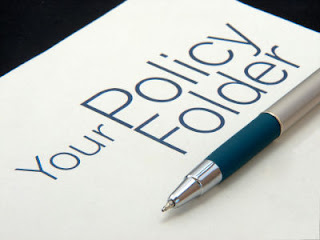Driving cars in this manner for business purposes clearly cannot be allowed under a normal private motor insurance policy, however it would be impractical if not impossible to add named vehicles onto any type of policy in the course of your normal days work.
For this reason a special class of commercial motor insurance exists called motor trade road risks insurance. The cover this policy provides satisfies the Road Traffic Act to enable the policyholder to 'drive any vehicle' in the course of their business, and if they choose for social, domestic and pleasure purposes as well.
A motor trade policy offers the most flexible driving cover available and nearly every scheme can be tailored to a particular motor trade's road risks.
Road risks insurance is calculated differently from private motor premiums where the declared value of a car is used for rating. In a road risks policy the trader sets a level of indemnity or amount that he wishes to cover himself for driving other vehicles. This could be as little as five thousand for a part-time used car dealer or mechanic up to a hundred thousand for a valet in a Ferrari Dealership for example.
A new car dealership of prestige cars would need a policy that not only covered the cost of replacing a new car should it be written off but also an extension to cover members of the public test driving the car accompanied by a named driver. However a used car dealer working from home or a mobile mechanic would only need basic road risks cover with perhaps a tools cover extension. Many road risk policies vary in what is considered basic cover and motor traders should be aware of extra covers such as legal protection and windscreen covers, as they would with a normal motor insurance policy.
Motor Traders with premises such as forecourts or shops will require what is known as a combined motor trader policy. This is simply a basic road risks policy allowing employees and named drivers to drive any vehicle combined with other risks that a motor trader might face, such as liability and property damage.
Liability insurance forms the basis of a combined motor traders policy, in particular product and public liability which covers your business against claims from members of the public to who you have supplied services or parts or who have suffered injury whilst visiting your premises.
If you employ any staff in either workshops, garages offices or out on the road in commercial vehicles or vans, you are required by law to have employers liability insurance cover in force. This cover protects your motor trade business against claims from employees and staff who might suffer an accident at work and claim against you in the courts.
Full combined motor trade insurance policies offer motor traders buildings and contents commercial property insurance cover for garages, workshops, office contents, machinery such as car lifts and compressors and tools, shop cover and stock.
Additional options such as business interruption insurance is available to cover catastrophe situations such as a fire where you may lose all your stock, or group personal accident which will cover members of staff against accident and sickness.
Anyone who works in the motor industry can apply for a motor trade insurance policy. Policies are available for car dealers, car valets, parking attendants, mechanics, body repair shops, service garages and motor parts shops, to name but a few trades eligible.
Motor trade cover is available to all small businesses including sole traders without premises and people working from home and on a part-time basis.





 16:32
16:32
 hanif
hanif




